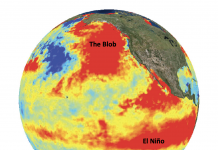Open Access Government produces compelling and informative news, publications, eBooks, and academic research articles for the public and private sector looking at health, diseases & conditions, workplace, research & innovation, digital transformation, government policy, environment, agriculture, energy, transport and more.
Home 2025
Archives
Charting the technical landscape of marine carbon dioxide removal
Dr Nils Thonemann and Mona Delval from the University of Leiden consider the scientific and technical requirements for effective evaluation of emerging marine carbon dioxide removal (mCDR) approaches.
Salinization of coastal groundwaters in the EU – What can we do about it?
Written as part of the LIFE-FRESHMAN project, this article examines the issue of coastal groundwater salinization in the EU, particularly its impact on freshwater reserves, and highlights key strategies for mitigation.
Can stem cells aid coral reef recovery?
Shani Talice and Benyamin Rosental from Ben Gurion University of the Negev explore how stem cells could help corals recover from stress and environmental damage, addressing the urgent threats of climate change, pollution, and disease to coral reefs.
Algae4IBD: A holistic approach to IBD treatment
The Algae4IBD project is exploring the untapped potential of algae and cyanobacteria to manage inflammatory bowel disease (IBD). In this exclusive Q&A, Dr. Dorit Avni, Research Group Leader explains how the team are creating innovative functional foods, aiming to improve quality of life and prolong remission for patients worldwide.
SURIMI: Pioneering sustainable fisheries management via EU DTO
Patrycja Antosz, the Research Director of the Center for Modeling Social Systems in NORCE Research AS, shares details of the SURIMI project, part of the European Digital Twin of the Ocean (EU DTO) initiative, aiming to enhance sustainable fisheries management.
Modelling ocean currents in a changing climate
Paul Myers, Professor at the University of Alberta, emphasizes the necessity for a new generation of very high-resolution computer models to effectively understand how ocean currents will change in a warming climate.
Navigating the sea of uncertainty around Marine Carbon Dioxide Removal (MCDR)
Prof. Christopher Pearce and Dr Willem van Dorp discuss the need for science-based governance approaches when evaluating the potential benefits, impacts and effectiveness of emerging marine carbon dioxide removal techniques.
How Ukraine’s Naval Institute defies war
Professor Denys Zavhorodnii of the Department of Naval Tactics at the Naval Institute in Odesa, looks at how Ukraine’s Naval Institute defies war to sustain leader development.
Disentangling risks and opportunities of offshore wind for marine ecosystems
Offshore wind brings new challenges alongside new opportunities for marine governance. Ecosystem models help to shed light on the complex interplay between humans and nature.
A new wave in oyster farming: Making oysters cheaper than chicken
After a 37-year career as Lead Seafood Microbiologist at the USFDA, Dr Angelo DePaola decided to tackle a different challenge: oyster farming.
Securing the Baltic Sea’s built seascapes: Balancing innovation, security, and sustainability
Karina Barquet, Hans Liwång, and Torsten Linders explore how the Baltic Sea is evolving into a ‘built seascape.’ They highlight the necessity for cooperation and security strategies, alongside renewable energy and improved digital connectivity developments, to harmonize innovation with environmental protection.
Ocean nourishment sequestering carbon dioxide in the deep ocean
Phytoplankton have been essential to life on Earth for over 35 billion years. Through photosynthesis, they consume carbon dioxide on a scale comparable to that of forests and other land plants. Edwina Tanner from the WhaleX Foundation shares insights on this and discusses the potential for plankton-based solutions in marine carbon dioxide removal (mCDR) and ocean nourishment.
A novel approach to sampling microplastics
Applied Ocean Sciences is creating a sensor that is faster, more efficient, and less expensive than current sampling methods and will be the first sensor to allow near real-time abundance measurements for microplastics in a water sample.
The new blue: Built-up seascapes create new maritime relations
Four representatives of the research programme, Mistra Co-Creating Better Blue, discuss maritime innovation in the context of a dawning new era for human presence and activities at sea.
All hands on deck for ocean-based CO2 removal research
Prof. Dr. Katja Fennel, Chair of the Department of Oceanography, Dalhousie University, Halifax, Nova Scotia, Canada, argues that we need all hands on deck for ocean-based CO2 removal research.
Fish hearts expose toxic truth about our cardiovascular health
Professor Holly Shiels, from the University of Manchester, is the Director of the Company of Biologists and the President of the Fisheries Society of the British Isles. She charts a toxic tide by tracing the path of pollutants from fish hearts to human cardiovascular health.
Sustainability transformations in marine governance in Sweden via social learning
Dr. Angelo Jonas Imperiale and Dr. Uta Wehn describe the MISTRA C2B2 programme’s unique approach to promoting sustainability transformations in Sweden’s marine governance through social learning in Living Labs.
Marine plastic litter vs clean and living water
Marine plastic pollution is a global crisis with increasing impacts on the environment, marine life, and human health. Multinational and national organisations are working to develop solutions that are accepted by all stakeholders connected to the marine environment and fishing industry.
PETRI-MED: Enhancing marine phytoplankton diversity monitoring in the Mediterranean
Preserving biodiversity is crucial for sustaining life on Earth. Unfortunately, it is facing growing threats. Marco Talone and the PETRI-MED Team discuss their objectives for the PETRI-MED project and explain why it is urgently necessary.
Seabirds and humpback whales give early warning to marine heatwaves
Lauren Bien from Prince William Sound Science Center and Mayumi Arimitsu from USGS, Alaska Science Center and additional contributors, John Moran and Rob Suryan, Alaska Fisheries Science Center explain how seabirds and humpback whales provide early warning signals during extreme marine heatwaves.

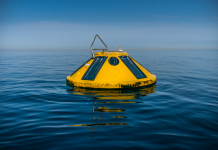
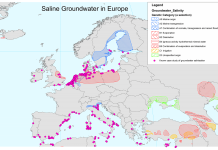

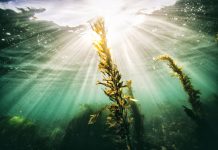
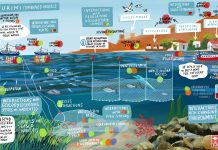
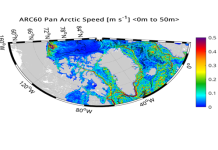
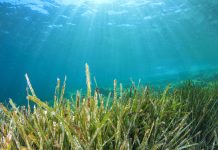

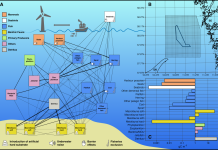
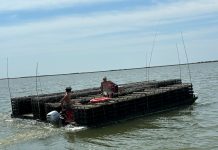
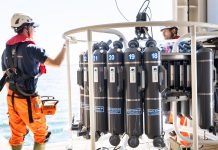
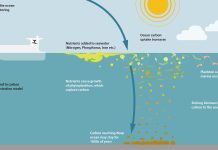
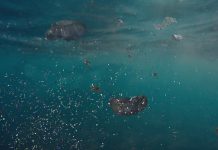
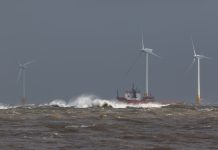

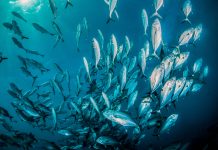
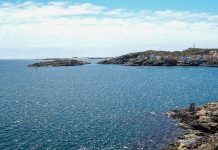

![PETRI-MED: Enhancing marine phytoplankton diversity monitoring in the Mediterranean 1-day RGB composite image of the Mediterranean Sea as observed by Sentinel 3A and 3B on July 14th, 2022. ©EUMETSAT [2024] phytoplankton](https://www.openaccessgovernment.org/wp-content/uploads/2024/08/PETRI_MED_image-218x150.png)
